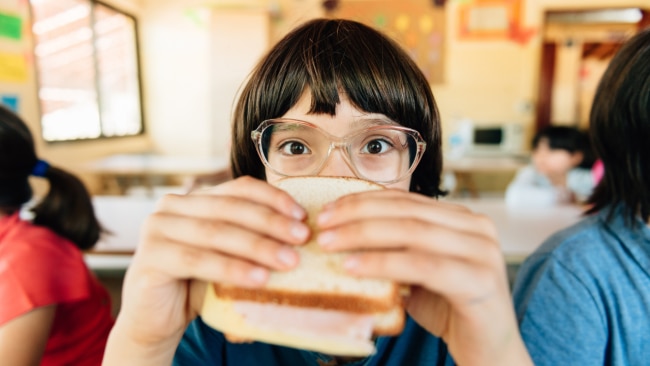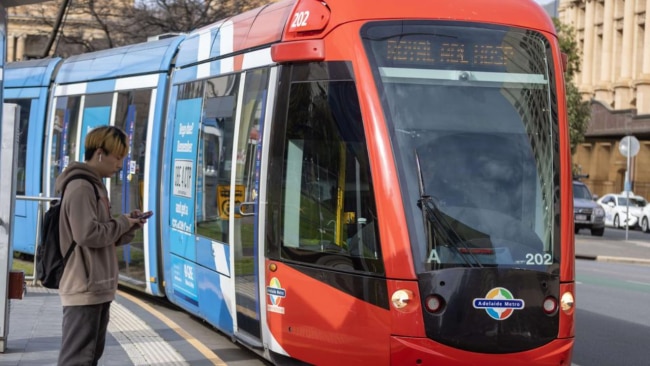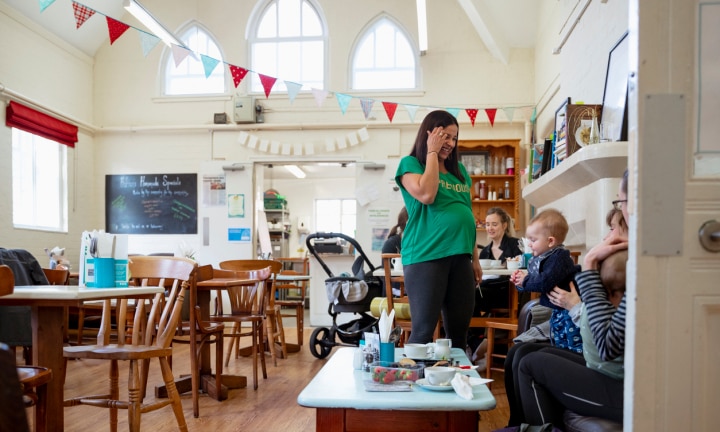South Australia moves forward with ham sandwich ban and people aren't happy
The experts have weighed in and even they aren't exactly thrilled.
Lifestyle
Don't miss out on the headlines from Lifestyle. Followed categories will be added to My News.
Who's to say what you can or can't put in your kid's lunch box? A lot of people, actually. Just look at the recent stories published about unwanted notes left by teachers and day care workers.
Unhealthy items are often the reason for the left messages, but what's unhealthy exactly? Lollies? Fairy bread? Sure. But what about the good old ham sandwich?
Apparently that's on the list too, and it has caused such a stir in recent times that South Australia has now moved to ban all advertisements that mention the trusty cold meat staple.
Want to join the family? Sign up to our Kidspot newsletter for more stories like this.

South Australia's ban on ham sandwiches
Recent reports have confirmed that advertisements on ham and salad sandwiches will be banned on South Australia's public transport in a bid to push healthier eating in children and tackle the ongoing issue of adult and childhood obesity in their state.
The ban, which is said to be enforced from July 1st 2025, will not only include cold meats like ham being plastered on the state's buses, trains and trams but will also see any images or mentions of chocolate, lollies, ice cream, soft drinks and other confectionery removed from public viewing.
According to the Australian Association of National Advertisers, it's a "blanket ban" that is uncalled for and a little extreme.
“As it stands, this policy bans all processed meats, which means a simple ham salad sandwich can’t be advertised.” AANA CEO Josh Faulks said, according to news.com.au.
“This simply doesn’t make sense and the government should be making evidence-based decisions, not blanket bans that don’t align with nutritional science.”
RELATED: Parents rage after school bans meat in lunch boxes
Is this really necessary?
When looking at South Australian statistics alone, recent figures have highlighted that 63 per cent of adults and 35 per cent of children across the state are overweight or obese.
If the ban comes into effect, the AANA wants the government to adopt what it calls a “science-based approach” by using nutrient profiling scoring criteria to determine which foods should be restricted.
For Australian paediatric nutritionist, Susie Burrell, the move is certainly one people in the industry saw coming given recent news about experts wanting parents to stop putting the humble hambo in their kids' lunch boxes.
"The World Health Organisation classifies processed meats including salami, sausages, bacon and devon as Grade 1 carcinogen’s, which means that increased consumption is associated with an increased risk of developing cancer, bowel cancer in particular. There are chemicals in both red and processed meat which can damage the lining of the gut which can lead to bowel cancer," Susie tells Kidspot.
"Like many areas of nutrition though, the reality is a little bit more complicated. Not everyone who consumes processed meats will develop bowel cancer. Rather, whether or not individuals develop cancer will depend on a range of other variables including genetics, usual dietary intake, alcohol consumption, among other factors that increase or reduce the risk of cancers developing."
For Susie, a ham sandwich is totally fine to put in your child's lunch box and shouldn't be the main concern for childhood obesity, leading to bans such as the one in South Australia.
"In the diet of an individual who consumes large portions of red and processed meat, as part of a high fat diet with minimal fresh food, the risk overall is greater. While for someone who consumes a ham sandwich on wholegrain bread each day, along with 7-10 serves of fresh fruit and vegetables and minimal processed foods, the risk is significantly lower," she explains.
"This is the issue with targeting a single food within a mixed and varied diet which may offer many other protective factors against cancer development. There is also a big difference in the range of processed meats you can find - some are low in fat; some are nitrate free and some have much more protein and less sodium – they are not all and one the same thing."

How other states should move forward
Back in 2022, the Cancer Council issued a grim warning to parents to stop putting cold, processed meats in their children's sandwiches at school because of the link to increased risk of bowel and stomach cancer.
“We know that ham is a lunch box staple for many families, however, Cancer Council recommends that we limit or avoid processed meats because of their link to increasing the risk of bowel and stomach cancer,” a release from the Cancer Council said at the time.
The Australian Dietary Guidelines said these foods are deemed discretionary, like cakes and biscuits, and should therefore only be eaten occasionally.
For Susie, she'd like to see more manufacturers thinking of better options to put on the market rather than pile on stress for parents about what their children can or can't eat.
"Let’s use public health messaging to target the manufacturers of processed meats to make better products that are lower in salt, preservative free and to create innovative products that are better for everyone’s health," she says.
"That is where the energy of public health organisations is much better spent and leave the consumer messaging to the clinicians who are much more familiar with the daily stressors the average family is dealing with, especially in relation to packing an appealing and nutritious school lunchbox."
More Coverage
Originally published as South Australia moves forward with ham sandwich ban and people aren't happy





